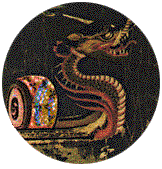In "A Thing Like Me," the concluding chapter of The Shallows: What the Internet Is Doing to Our Brains, Nicholas Carr describes a USC Brain and Creativity Institute study and then draws some conclusions.
Psychologists have long studied how people experience fear and react to physical threats, but it's only recently that they've begun researching the sources of our nobler instincts. What they're finding is that, as Antonio Damasio, the director of USC's Brain and Creativity Institute, explains, the higher emotions emerge from neural processes that "are inherently slow." In one recent experiment, Damasio and his colleagues had subjects listen to stories describing people experiencing physical or psychological pain. The subjects were then put into a magnetic resonance imaging machine and their brains were scanned as they were asked to remember the stories. The experiment revealed that while the human brain reacts very quickly to demonstrations of physical pain—when you see someone injured, the primitive pain centers in your own brain activate almost instantaneously—the more sophisticated mental process of empathizing with psychological suffering unfolds much more slowly. It takes time, the researchers discovered, for the brain "to transcend immediate involvement of the body" and begin to understand and to feel "the psychological and moral dimensions of a situation."
The experiment, say the scholars, indicates that the more distracted we become, the less able we are to experience the subtlest, most distinctively human forms of empathy, compassion, and other emotions. "For some kinds of thoughts, especially moral decision-making about other people's social and psychological situations, we need to allow for adequate time and reflection," cautions Mary Helen Immordino-Yang, a member of the research team. "If things are happening too fast, you may not ever fully experience emotions about other people's psychological states." It would be rash to jump to the conclusion that the Internet is undermining our moral sense. It would not be rash to suggest that as the Net reroutes our vital paths and diminishes our capacity for contemplating, it is altering the depth of our emotions as well as our thoughts.
One reaction I had to what Carr says here is that literature—including a book like The Shallows—offers what the Internet often does not: immersion in the experiences and thoughts of others long enough to develop true empathy and complex understanding. It's the loss of the bounded, limited self that we refer to when we talk about losing ourselves in a book.
I also thought about "Harrison Bergeron," Kurt Vonnegut Jr.'s 1961 short story, which begins:
The year was 2081, and everybody was finally equal. They weren't only equal before God and the law. They were equal every which way. Nobody was smarter than anybody else. Nobody was better looking than anybody else. Nobody was stronger or quicker than anybody else. All this equality was due to the 211th, 212th, and 213th Amendments to the Constitution, and to the unceasing vigilance of agents of the United States Handicapper General.
Some things about living still weren't quite right, though. April, for instance, still drove people crazy by not being springtime. And it was in that clammy month that the H-G men took George and Hazel Bergeron's fourteen-year-old son, Harrison, away.
It was tragic, all right, but George and Hazel couldn't think about it very hard. Hazel had a perfectly average intelligence, which meant she couldn't think about anything except in short bursts. And George, while his intelligence was way above normal, had a little mental handicap radio in his ear. He was required by law to wear it at all times. It was tuned to a government transmitter. Every twenty seconds or so, the transmitter would send out some sharp noise to keep people like George from taking unfair advantage of their brains.
In the year 2016, it is not the government's mission to make us all equal but business's mission to make us all consumers that drives the effort to interrupt us and distract us from our thoughts. This is life in the twenty-first century: making our way through a maze of advertising in order to find what we truly want. What will we have forgotten along the way? What will we have lost?
In Vonnegut's story, the Bergerons have become so handicapped that they are unable to register the most tragic event in their lives. Despite George's possessing a superior intelligence, he cannot construct a narrative of what he witnesses; and without a narrative, his singed brain cannot form an interpretation, much less a judgment. Hazel sheds a tear, but she does not know why. Her pain centers have been reached, but the pain she feels is like her husband's: an acute, wounding sensation without meaning.


